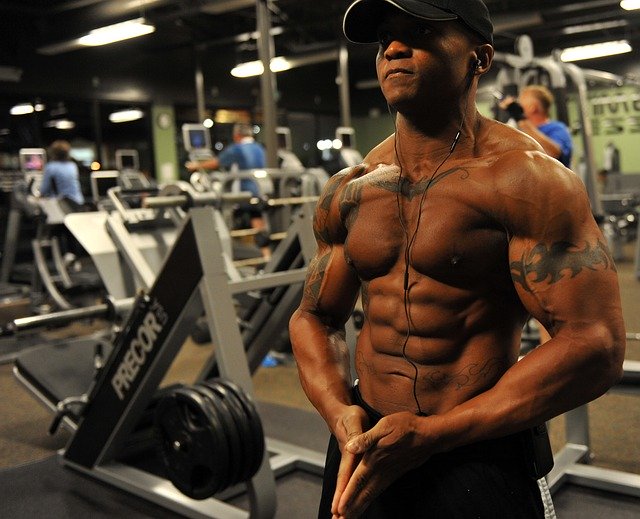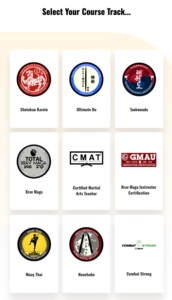Traditionally martial artists have committed very little time to weight training.
Martial artists including trainers, fighters and black belts across different martial arts have viewed weight training as producing heavier, slower and less agile bodies.
Thus weight training has long been seen as being unsuitable for martial arts.
This post is here to dispel that myth and give you 7 useful actionable tips to effectively implement weight training into your martial arts training.

With a targeted weight lifting program and specific weight exercises for muay thai, the product is a more powerful, stronger and fitter fighter/martial artist.
Coupled with regular skill and technique training and sound strategy, a more complete martial artist and fighter is the end product.
For a lot of fighters and martial artists implementing a weight lifting program can be confusing and overwhelming.
So here are 7 tips to get the most out of weight training for martial arts and make weight training more effective and easier to implement.
By implementing these tips consistently over weeks and months you will come out more powerful, stronger and even more importantly, less injury prone.
1. Always Remember – Martial Arts is Priority
This means if you are short of time and energy, opt to do more muay skill and technique work over weight training.
Always remember to not push yourself so hard in weigh training that it affects your martial arts technique and training.
The other tips below will definitely help with you keeping a good balance between weight training and martial arts.
But keeping in mind that your number one goal is to improve as a fighter or martial artists and not to be the strongest or biggest in the gym, is very important.

Don’t get carried away with weight training but use it as a powerful and useful tool to boost your martial arts training.
2. Use Compound/Functional Exercises
Staples in your training program should be Squats of various types such as barbell squats, Bulgarian split squats and dumbbell squats.
Also bench and presses, shoulder presses and rows for the back.
If possible weight chin ups and pull ups are also excellent compound and functional exercises that will increase your strength, muscular endurance as well as add lean muscle mass (if this is your goal).
Stick to the staple exercises below to get strong and powerful for muay thai:
- Squats
- Chest press
- Should press
- Pullups/chin ups
- Rows (bar bell or dumbbell)
- Stiff legged deadlifts
3.Warm Up Thoroughly Before Each Weights Session
This is extremely important for injury prevention and to also work on increasing your range of motion in your muscles to get more out of your weight lifting.
It is definitely advisable to begin to stat to sweat a bit before you lift a single weight.

Some great warm up exercises include light jogging, jumping jacks, running in place, skipping rope and of course shadow boxing or performing forms or kata.
Once your body is warm you need to spend a bit of time getting mobile and loose. Having your blood flowing and sweat going will make this easier.
4.Include Mobility Exercises with your weight training
Improving mobility can only help your weight lifting efforts as well as your martial arts training.
Improving mobility and flexibility will also help you recover quicker from weight sessions so you can give your all in your martial arts training.
Being stiff and immobile from your weight sessions will only hinder you martial arts training – mobility work before and strengthening after weight training will help prevent this.
Check out a previous popular post I wrote about Hip Mobility for martial arts.
Below is a video from my Fiji Muay Thai YouTube that shows the typical warmp and mobility work I do before muay thai/Bjj training or weight lifting.
5. Periodize Your Training
This is hugely important for martial artists and muay thai fighters.
If you include weight training as part of your pre-fight camp then you need to periodize your training so you are developing your fitness in specific areas for an overall better conditioned fighter and martial artist.

For example sticking with heavy weights in low rep ranges all the way up to the final week of a fight camp is not the best idea.
This is because along with developing more strength and perhaps size and weight you also need to focus on power.
Either way as a martil artisits there are various areas of physical conditioning that need development and they all cannot be done at the same time.
An example periodized 12 week program could look like:
- Base Strength – 4 weeks
- Muscular Endurance – 4 Weeks
- Power – 4 Weeks
Check out the highly recommended Ultimate Guide to Strength & conditioning for MMA by Eric Wong that provides a done for you periodized program specifically for martial artists.
6.Plan for and Commit to Nutrition
Getting adequate nutrition when training martial arts alone is hhigely crucial to performance and recovery. Adding in weight training will further tax your obdy and require more from your nutrition and eating plan.
In a professional fight camp in Thailand the chef is one of the most important members of the camp and nutritious food is a important part of muay thai camps and for al martial artists.

Just as you plan in your 1-3 weight training sessions for the week also be sure to plan for good meals post training and something light but nutritious for an hour or so before training.
Having a healthy balanced when starting and ending your day will only help your efforts in the gym to get the best results.
7. Rest, Recover and Reset
If you are a professional fighter than the heavy mental and physical demands of a fight camp are well understood.
This high level intensity of training and also cutting weight is very intense and cannot be maintained throughout the year.
Usually it is kept up for a about a 12 week fight camp with the fighter peaking in physical condition at the end of the 12 weeks ready for the fight.
Again you need to periodize your training whether pre fight camp or regular training.

Resting both the body and mind is crucial to keep improving and reaching new levels of physical conditioning and mental strength through hard training.
Plan to get a good quality 7-9 hours or more if necessary of sleep each night.
With just regular training if you are periodizing your training and peaking at around week 12, then be sure to take a week off of training completely and even up to two weeks if necessary to let your body and mind recuperate.
This will also set the stage for your next levels of growth and development with the next phase of training.
Wrap Up
I hope you enjoyed the 7 tips above.
I am sure if you implement them over time you will reap the results from your weight training for martial arts while also negating the potential negatives of weight lifting on your martial arts training.
Here are those 7 tips again to keep in mind when weight training for martial arts.
Remembers it is long term consistent efforts that will reap the most long lasting and impressive results.
- Tip 1 : Always Remember – Martial Arts is Priority
- Tip 2: Use Compound/Functional Exercises
- Tip 3: Warm Up Thoroughly Before Each Weights Session
- Tip 4: Include Mobility Exercises with your weight training
- Tip 5: Periodize Your Training
- Tip 6: Plan for and Commit to Nutrition
- Tip 7 : Rest, Recover and Reset



